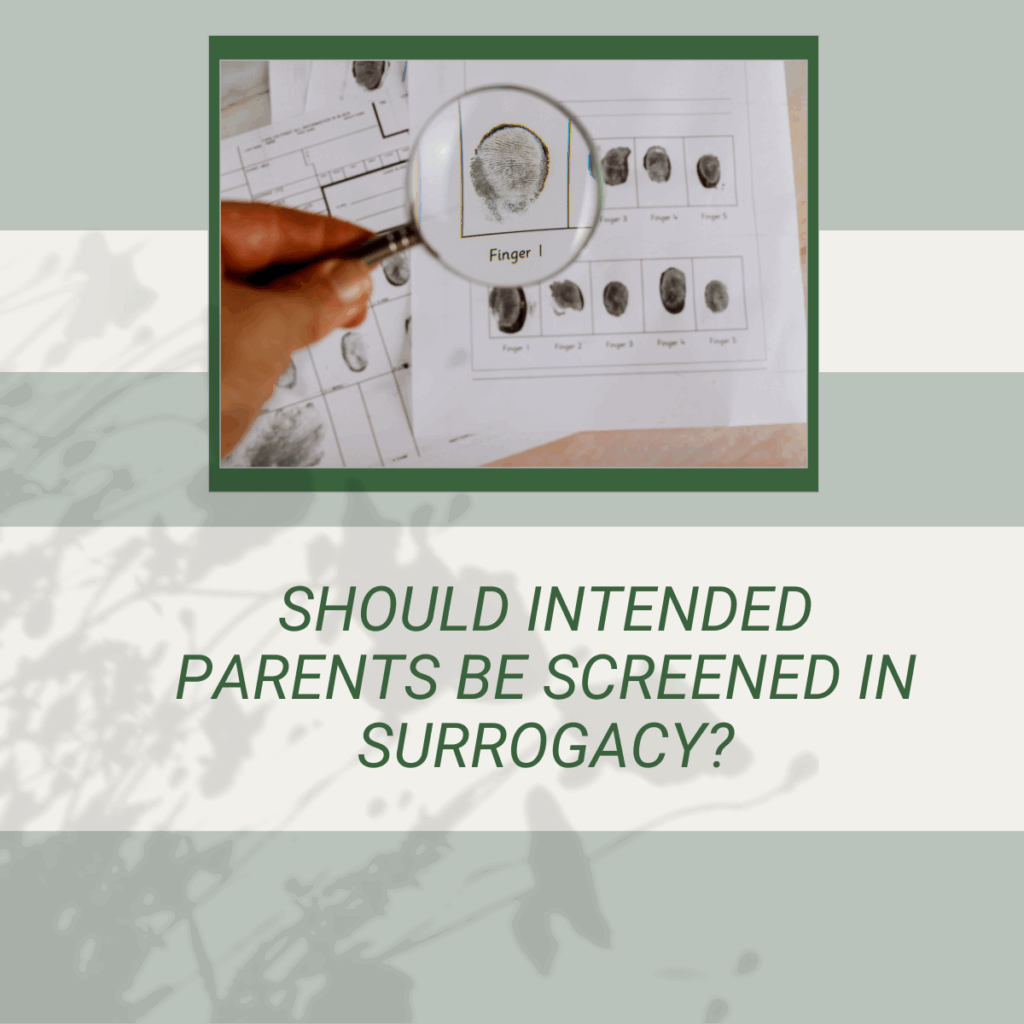A troubling story came out of Pennsylvania recently: a convicted sex offender became a parent through surrogacy.
If this had been an adoption or a foster care situation, it never would have happened. Adoption and Foster care laws require background checks and have clear disqualifiers. But in surrogacy? In most places, there are no equivalent rules.
That leaves us with an uncomfortable question:
👉 Should intended parents be subject to background checks?
A Double Standard
Think about the current setup. Surrogates are screened at every level. They go through criminal background checks, psychological evaluations, medical exams, and often even home visits. And yet, the people who will actually raise the child are rarely asked to provide anything close to that level of information.
That imbalance is hard to ignore. If we care about the child’s safety and about giving surrogates the ability to make informed choices about the families they help, shouldn’t intended parents also be held to some kind of standard? Surrogacy already puts surrogates under the microscope. Asking for a little transparency from intended parents seems more than fair.
The Complications
Of course, it’s not always straightforward. In some countries, asking for a background check can bring unwanted government attention, particularly for LGBTQ+ individuals or unmarried couples. That doesn’t mean the idea should be abandoned, it just means it needs flexibility.
In these cases, a Letter of Good Standing from a trusted professional, such as a lawyer, doctor, or accountant, could serve as an alternative. The goal isn’t to exclude people. The goal is accountability, reassurance for everyone involved, and to make the best interests of the child the highest priority.
Time to Talk About It
It seems only logical that both surrogates and intended parents should have to prove their identity with a valid driver’s license or passport, undergo background checks, and meet at least once with a mental health professional. Just as importantly, the results of those checks and evaluations should be shared with each party’s legal counsel before legal clearance is issued.
This process gives surrogates the option of truly knowing who they’re helping, verifies identity, ensures there are no hidden criminal histories, and guarantees that everyone has had at least one real conversation about the realities of surrogacy.
It’s not about mistrust, it’s about transparency, protection, and fairness. This is a conversation the surrogacy field can’t afford to avoid any longer, because at the end of the day, the priority must always be the best interests of the child. And that begins with ensuring a safe home.


